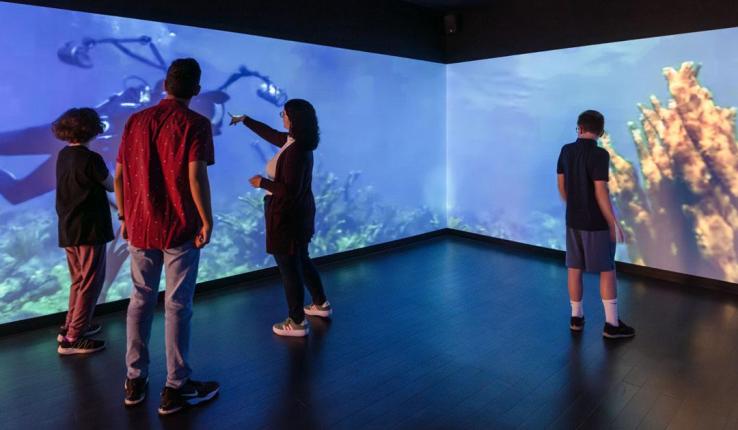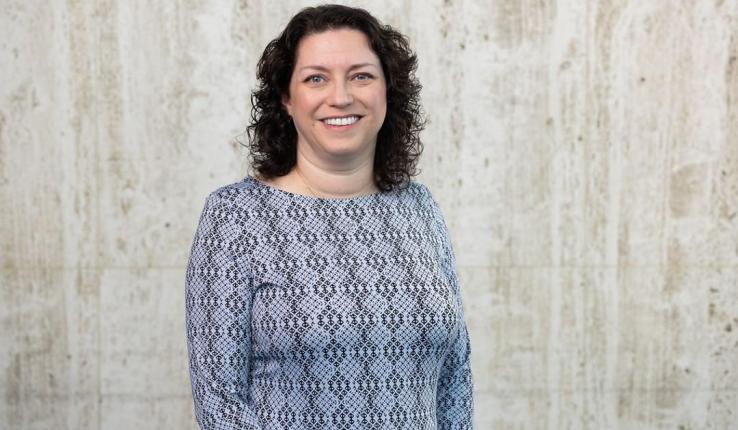Professor recognized for contributions to training of school psychologists
Edward S. Shapiro, professor of school psychology and director of the Center for Promoting Research to Practice at Lehigh, has won a prestigious national award for his lifelong contributions to the training of school psychologists.
Shapiro received a standing ovation as he accepted the Outstanding Contributions to Training Award in February from the Trainers of School Psychologists at its annual conference in New Orleans.
Though Shapiro previously received several top awards for his scholarly work, the latest award recognized his contributions in an area he has long been passionate about—effective training.
“I have been involved in impacting our field since I’ve been in it, trying to evolve the field’s perspective on training,” he said. “To get this award was very meaningful to me in that it really recognized a lifetime accomplishment that I’ve been very, very proud of.”
The Trainers of School Psychology gives out the award annually to a school psychology trainer who has demonstrated exceptional contributions to training that merits special recognition. The organization aims to foster high quality training in school psychology programs.
“There are very few individuals in the field of school psychology who have had the positive impact on training that Ed Shapiro has,” said Nathan Clemens, one of Shapiro’s former students and now assistant professor of school psychology at Texas A&M University. “He has been instrumental in advancing behavioral science in the practice of school psychology and has fostered significant improvements in the assessment practices of school psychologists."
Clemens said Shapiro’s books are in wide use in school psychology programs across the country. Along with his numerous peer-reviewed articles, he said, the texts have dramatically influenced the training and skill sets of school psychologists by shaping training models in important ways.
“On a personal level, as one of his former mentees, I can attest to his personal commitment to his students, his willingness to seek and provide opportunities for his students to grow, and his passion for training new generations of scholars and practitioners,” Clemens said. “Like many of his former students, my career was advanced profoundly by Ed’s mentorship.”
In accepting the award, Shapiro told several stories that underscored his steadfastness and the quality of Lehigh’s training programs that he helped to develop.
In one, he told of being called to a meeting of school psychologists who were supervising Lehigh students in the field during internships and practicums. Shapiro said he was told that while the Lehigh students were doing “amazing “ work and seemed to understand a lot about what was needed in consultations with school officials and teachers, those skill sets weren’t what the schools needed.
“So I looked at them and said, ‘What do you mean?’” Shapiro recalled. They said they needed professionals who could test students and identify who was in need of special education. ”I sort of shook my head, and I said, ‘Well, just wait. You’re going to need every one of those skills that they have, and we’re not going to be changing what we do in the program.’”
About a year later, Shapiro said, he found validation when state officials put into place the Instructional Support Team model, which called for the skill sets that Lehigh had been teaching its graduate students. And the school officials who had questioned Lehigh’s training path, he said, “couldn’t get enough of our students. It was basically, ‘see, I told you so.’”
In another story, Shapiro recalled that he and his colleagues recognized in the early to mid-1990s that doctoral training in psychology was going to be influenced by the health care industry. He said they felt that Lehigh’s doctoral students in psychology would need to be trained in a way that allowed them to understand the psychological, educational and health needs of children from a school perspective, not a hospital one. That led to the coining of the term “pediatric school psychology,” he said.
“Fast forward 20 years. Today that’s all psychology is talking about—psychology as a health care provider,” Shapiro said. “The stuff that we were doing has become the norm.”
Shapiro received his bachelor’s from the University of Pittsburgh at Johnstown, his master’s at Marshall University in West Virginia and his doctorate at the University of Pittsburgh. He has received numerous honors and awards, including the Pennsylvania Psychological Association’s Distinguished Contribution to School Psychology and Lehigh’s Eleanor and Joseph Lipsch Research Award for outstanding research contributions. He also has received the Lightner Witmer Award and Senior Scientist Award from the American Psychological Association for his contribution to the field of school psychology.
Prior to becoming director of the Center for Promoting Research to Practice, he was an Iacocca professor of education and chair of the department of education and human services at Lehigh.
Posted on:





